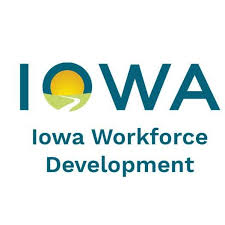State ends fiscal ’22 with large surpluses, triggers 14-point corporate tax cut

BUSINESS RECORD STAFF Sep 27, 2022 | 8:30 pm
2 min read time
482 wordsAll Latest News, Economic Development, Government Policy and LawGov. Kim Reynolds announced today that the state of Iowa will end fiscal year 2022 with a balance of $1.91 billion in the general fund, $830 million in reserve funds and $1.06 billion in the Taxpayer Relief Fund. Under tax relief legislation that Reynolds signed earlier this year, this will trigger a decrease in Iowa’s top corporate tax rate to 8.4%, and drop the number of corporate tax rates from three to two, which was not projected to happen until at least 2027.
“Time and again over the last five years, we’ve ignored the self-appointed experts who insisted that tax cuts and economic prosperity wouldn’t be worth the cost,” Reynolds said in a press release. “In fact, as today’s budget numbers show, they were worth every penny. It turns out that growth-oriented policies and fiscal restraint are a powerful combination.”
The governor’s tax bill, HF2317, signed in March, includes the formula to reduce the corporate tax rate when net corporate income tax receipts exceed $700 million. For fiscal year 2022, net corporate income tax receipts exceeded $850 million, triggering a drop of 14.2% in the top corporate tax rate to 8.4% from 9.8%.
The bill’s goal is to reach a flat rate of 5.5% on all corporate income, to be phased in over several years. The trigger: If the annual corporate tax collected exceeds $700 million, the percentage by which that amount is exceeded will be used to determine a percentage to lower the top tax rate, until the tax rate is lowered to a single rate of 5.5%.
The tax cut triggered to go into effect next year will trim an estimated $19.6 million in corporate income from taxation in 2023, with that amount increasing each year, according to estimates made earlier this year.
Reynolds said in the release that the policies she has enacted have resulted in strong fiscal health for the state, and a tax code that is “more competitive than ever.”
A separate, independent report released today by the Tax Foundation ranked Iowa as having the fifth-highest corporate tax rate among all the states, with a combined federal-state rate of 29%.
The state with the highest combined state and federal corporate tax rate is New Jersey at 30.1%, the study found. Corporations in Alaska, California, Illinois, Iowa, Maine, Minnesota and Pennsylvania face combined corporate tax rates at or above 28%. On the low end of the spectrum, six states — Ohio, Nevada, South Dakota, Texas, Washington and Wyoming — levy no state corporate income tax and have only the federal tax rate of 21%.
Iowa’s fiscal year 2022 closed on June 30, but the accrual period officially ends on Sept. 30. During those three months, Iowa closes the books and pays and receives any outstanding obligations. Fiscal year 2021’s budget surplus was $1.24 billion.
To read a related Business Record article about the tax cut legislation, visit this link.










